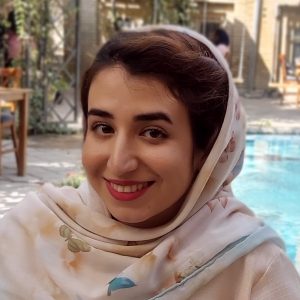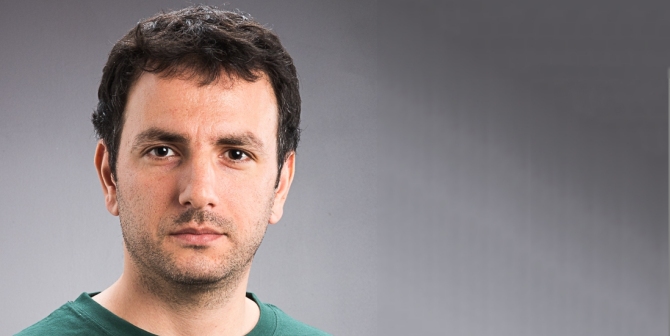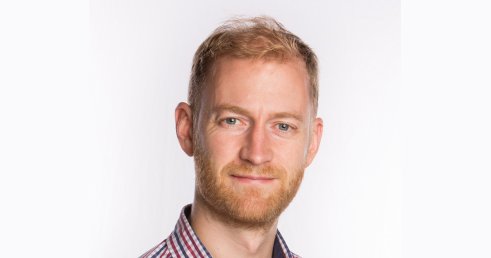 Sahar Jahani is a PhD student who joined the Department of Mathematics in September 2020. Her supervisor is Professor Bernhard von Stengel and her research is in Game Theory. In this post, fellow PhD student Bento Natura finds out more about her research, as well as her inspirations in mathematics…
Sahar Jahani is a PhD student who joined the Department of Mathematics in September 2020. Her supervisor is Professor Bernhard von Stengel and her research is in Game Theory. In this post, fellow PhD student Bento Natura finds out more about her research, as well as her inspirations in mathematics…
Can you tell us a little bit about yourself?
I was born in a small city in west Iran, Khorramabad, where I lived for about 11 years before moving to Tehran. I stayed to study Mathematics and Applications, a very general program, at the University of Tehran. My master’s was received at the same institution in Applied Mathematics, especially Game Theory, before moving here for my PhD.
What exactly in game theory does your research focus on, and how at university did you first become interested in the area?
My main focus is on three-player games. Currently, we are working on the theoretical side, not applications. The focus is on two by 2 x 2 x 2 games. They look simple, but degeneracy in these games makes them hard. Degeneracy means that there are multiple best responses of one player to a pure strategy of another player. In 2 x 2 x 2 games, best responses of players can look geometrically like hyperbolas, and you can have bad two-dimensional Nash equilibria. We aim to understand the degeneracy of these kind of games better.
Another thing I just began to work on are inspection games. In inspection games you have some inspectors and evaders. Clearly, the inspectors want to catch the evaders and there are some jurisdictions in which the inspectors operate. Further there are exit points through which the evaders aim to escape. These games are played in multiple rounds and in each round the inspectors can decide in which of the locations in their jurisdiction they want to inspect. Simultaneously, the evaders are choosing a location. When the sizes of jurisdictions are equal, everything is fine, but when the sizes are different, the evaders will be inclined to move to bigger jurisdictions as there will be a smaller chance of getting caught. Consequently, the inspectors with bigger jurisdictions will have more evaders trying to use their exit points. A strategy now means to match inspectors to jurisdictions and to find optimal exit points for the evaders to escape. Our aim is to set some conditions on the problem so that the Nash equilibria for the optimal strategies of both inspectors and evaders are better distributed.
One last thing I’m working on with Professor Bernhard von Stengel and other students is a game theory website for which I’m responsible for the back end.
How did you first become interested in mathematics in general and particularly in your area of research?
I’ve been interested in mathematics since I was a child. My father is an engineer, and both my parents encouraged me to engage with mathematics and played mathematical and logic games with me.
At the end of primary school, as well as three years after for high school, we have entrance exams for the organisation NODET (National Organization for Development of Exceptional Talents), and the exams mostly test mathematical ability. In these schools you get the best possible education. You learn more advanced topics and are among stronger peers. It was really important for my family, so I was practicing a lot, but nonetheless really liked and got more interested and excited about mathematics in general.
I got accepted in my hometown just before our move to Tehran, which unfortunately meant that I couldn’t enter the branch there and had to enter a private school instead, though I made it to the branch two years later for high school. In my personal experience the school was not that different, but as your classmates are all ambitious and talented, they encourage one another to work together. It is the environment that differentiates NODET schools from other schools. Many of the famous Iranian scientists, like Maryam Mirzakhani, are educated in these schools.
Later at university, I realised that I wouldn’t want to go deeper into pure mathematics, so decided to change my major to computer science where I entered an optional game theory course that captured my interest in this area. I found it fascinating how abstract games and their stable solutions can model real life problems.
You mentioned Maryam Mirzakhani, who seven years ago won the Fields Medal, the highest honours a mathematician under 40 can receive. What effect did she have on you and Iranian women in general?
She went to the same school as me. I remember our teachers constantly talking about her and her friend Roya Beheshti Zavareh, who is also a professor, and how brilliant they were. My geometry teacher who taught her was especially motivating for us to aim for that level.
Maryam was the first woman in the world to win a Fields Medal, and of course she’s a role model for all women in Iran: she gave us hope that we can reach higher levels and again have bigger dreams.
How does the research environment differ between the University of Tehran and LSE?
It’s different. Particularly in our department in Tehran, which was small, and my supervisor was the only Professor working on game theory. At LSE on the other hand, we have more faculty and students working on game theory so I can collaborate and have easier access to leading figures and literature in the field.
To close, what are two different aspects of life in London/Tehran?
What I really like about London generally is that you see people from all parts of the world together and hear different languages and have different foods from all over the world; they are the most exciting parts of London for me.
But on average food is better in Iran. If you want to get a taste of good Iranian food in London, I can recommend Chelo in Maida Vale.





